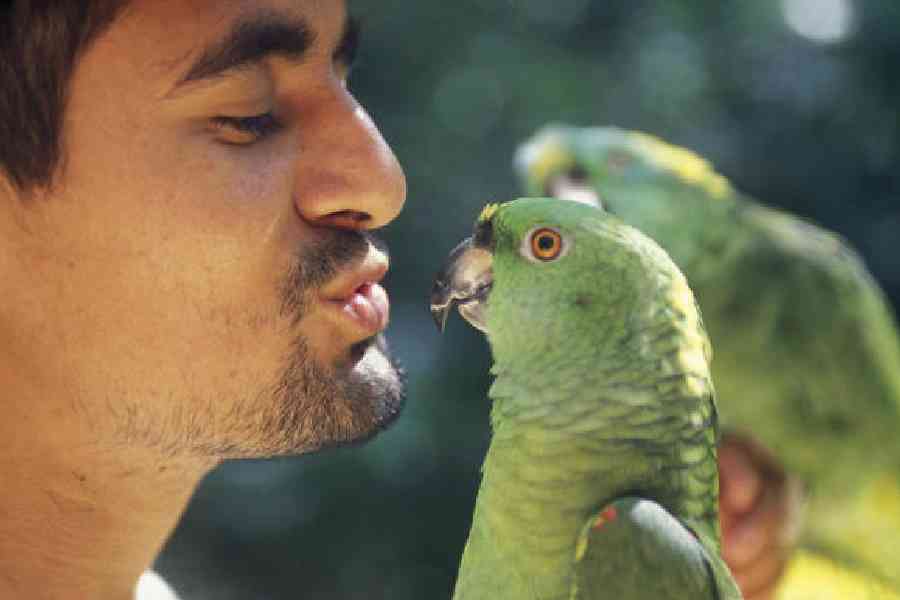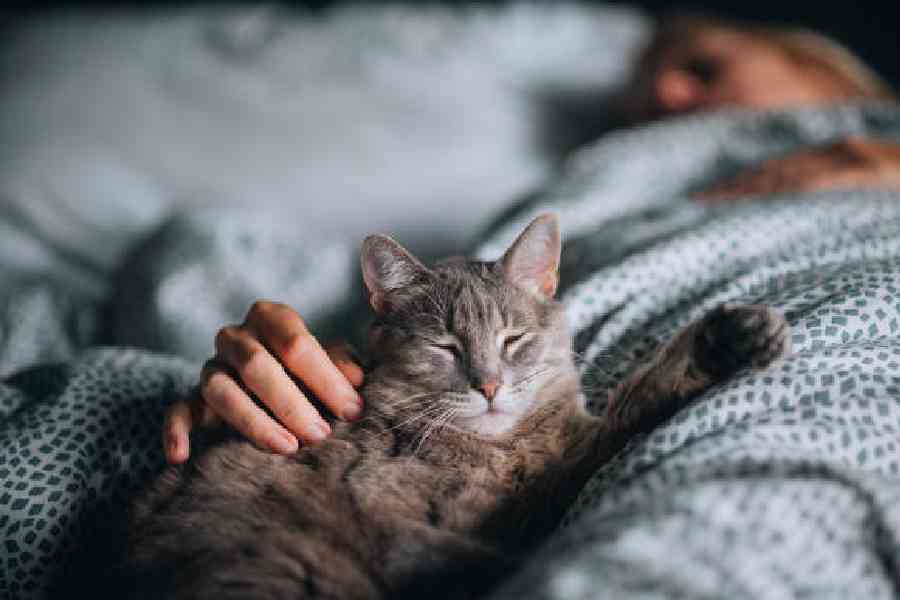What better way to express your love for your pet than to kiss them, right? Well, experts warn that pets can harbour diseases that may sometimes be transmitted to humans.
Our relationship with pets has changed drastically in recent decades. Pet ownership is at an all-time high, especially since many animal lovers took in pets during the lockdown.
While owning a pet is linked to numerous mental and physical health benefits, our pets can also harbour infectious diseases that can sometimes be passed on to us. For most people, the risk is low but for some, such as pregnant women and those with weakened immune systems, are at greater risk of getting sick from animals. So, it’s important to know these risks and take necessary precautions to prevent infections.
Cross-species diseases
Infectious diseases that move from animals to humans are called zoonotic diseases or zoonoses. More than 70 pathogens of companion animals are known to be transmissible to people.
Sometimes, a pet that has a zoonotic pathogen may look sick. But often there may be no visible symptom, making it easier for you to catch it, because you don’t suspect your pet of harbouring germs.
Zoonoses can be transmitted directly from pets to humans, such as through contact with saliva, bodily fluids and faeces, or indirectly, such as through contact with contaminated bedding, soil, food or water.
Studies suggest the prevalence of pet-associated zoonoses is low. However, the true number of infections is likely underestimated since many zoonoses are not notifiable, meaning they do not need to be reported to the authorities. Also, they may have multiple exposure pathways or generic symptoms.
Dogs and cats are major reservoirs of zoonotic infections (meaning the pathogens naturally live in their population) caused by viruses, bacteria, fungi and parasites. In endemic regions in Africa and Asia, dogs are the main source of rabies which is transmitted through saliva.
Dogs also commonly carry capnocytophaga bacteria in their mouths and saliva, which can be transmitted to people through close contact or bites. The vast majority of people won’t get sick, but these bacteria can occasionally cause infections in people with weakened immune systems, resulting in severe illness and sometimes death.
Cat-associated zoonoses include a number of illnesses spread by the faecal-oral route, such as giardiasis, campylobacteriosis, salmonellosis and toxoplasmosis. This means it’s especially important to wash your hands or use gloves whenever handling your cat’s litter tray.
Cats can also sometimes transmit infections through bites and scratches, including the aptly named cat scratch disease, which is caused by the bacterium bartonella henselae.
Both dogs and cats are also reservoirs for methicillin-resistant bacterium staphylococcus aureus (MRSA), with close contact with pets identified as an important risk factor for zoonotic transmission.
Bird of a feather
But it’s not just dogs and cats that can spread diseases to humans. Pet birds can occasionally transmit psittacosis, a bacterial infection which causes pneumonia. Contact with pet turtles has been linked to salmonella infections in humans, particularly in young children. Even pet fish have been linked to a range of bacterial infections in humans, including vibriosis, mycobacteriosis and salmonellosis.

To prevent infections from birds, wet their cage surfaces when cleaning
Close contact with animals — and some behaviours in particular — increases the risk of zoonotic transmission. A study from the Netherlands found half of owners allowed pets to lick their faces, and 18 per cent allowed dogs to share their bed. (Sharing a bed increases the duration of exposure to pathogens carried by pets.) The same study found 45 per cent of cat owners allowed their cat to jump onto the kitchen sink.
Wash your hands
Kissing pets has also been linked to occasional zoonotic infections in pet owners. In one case, a woman in Japan developed meningitis due to pasteurella multicoda infection, after regularly kissing her dog’s face. These bacteria are often found in the oral cavities of dogs and cats.
Young children are also more likely to engage in behaviours which increase their risk of getting sick from animal-borne diseases — such as putting their hands in their mouth after touching pets. Children are also less likely to wash their hands properly after handling pets.
Although anybody who comes into contact with a zoonotic pathogen via their pet can become sick, certain people are more likely to suffer from serious illness. These people include the young, old, pregnant and immuno-suppressed.
For example, while most people infected with the toxoplasmosis parasite will experience only mild illness, it can be life-threatening or cause birth defects in foetuses.
Shanoo Sarkar, a resident of Shukhobrishti, had as many as 17 cats a few years ago but now has a single male cat named Motu. And he is certainly pampered. “Motu sleeps on my bed but I lay a separate bedsheet for him between my husband and myself. He has his own towel, and bowls and I don’t even trust the domestic helps to wash the cloth used to clean up after him. I do it myself. We love him, pet him, kiss him but are particular about cleanliness too.”
Pet owners sometimes claim that it is not possible to wash their hands every time after playing with pets at home, but Dr Subir Bhattacharya doesn’t buy it. “Washing hands is a matter of mindset. If you have pets at home, it is mandatory to protect yourself this way,” says the vet who sits at Animal Pride in BE Block and Pets Planet in Falguni Market.
“It is also important to maintain canine and feline dental hygiene as it protects them as well as us. If their oral hygiene is poor the pet may contaminate us through saliva, irrespective of the vaccination updates,” Bhattacharya says.
So here’s what you can do to stay safe while still cuddling up to your pet —
è Wash your hands after playing with your pet and after handling their bedding, toys, or cleaning up faeces
è Do not allow pets to lick your face or open wounds
è Supervise young children when they are playing with pets and when washing their hands after playing with pets
è Wear gloves when changing litter trays or cleaning aquariums
è Wet bird cage surfaces when cleaning to minimise aerosols
è Keeping pets out of the kitchen (especially cats who can jump onto food preparation surfaces)
è Keep up to date with preventative veterinary care, including vaccinations, worm and tick treatments
è Seek veterinary care if you think your pet is unwell










